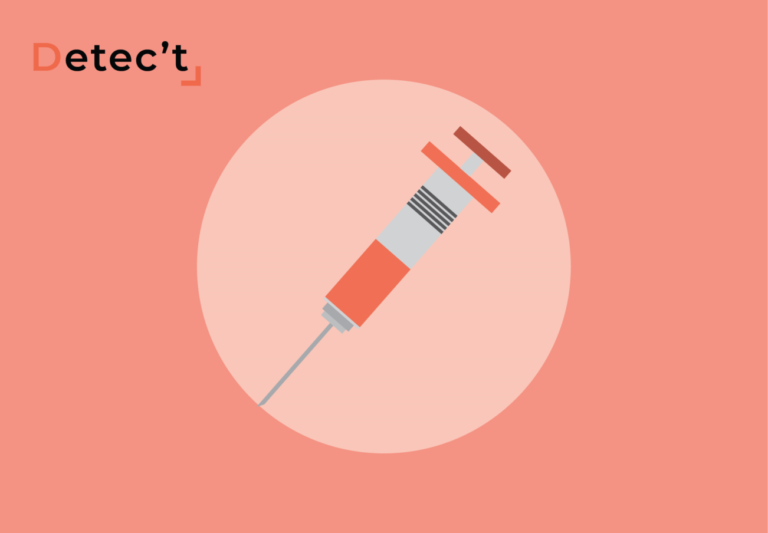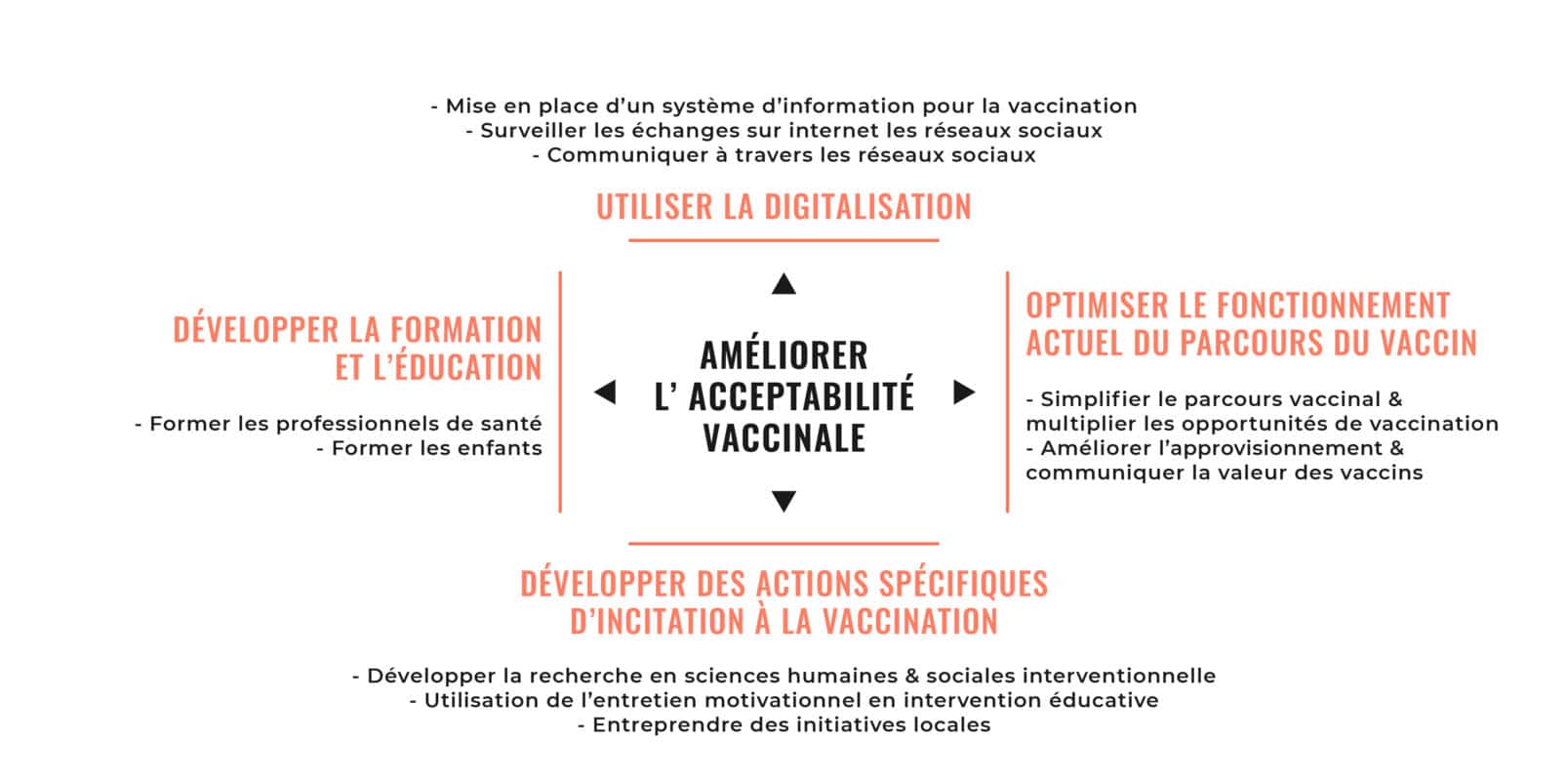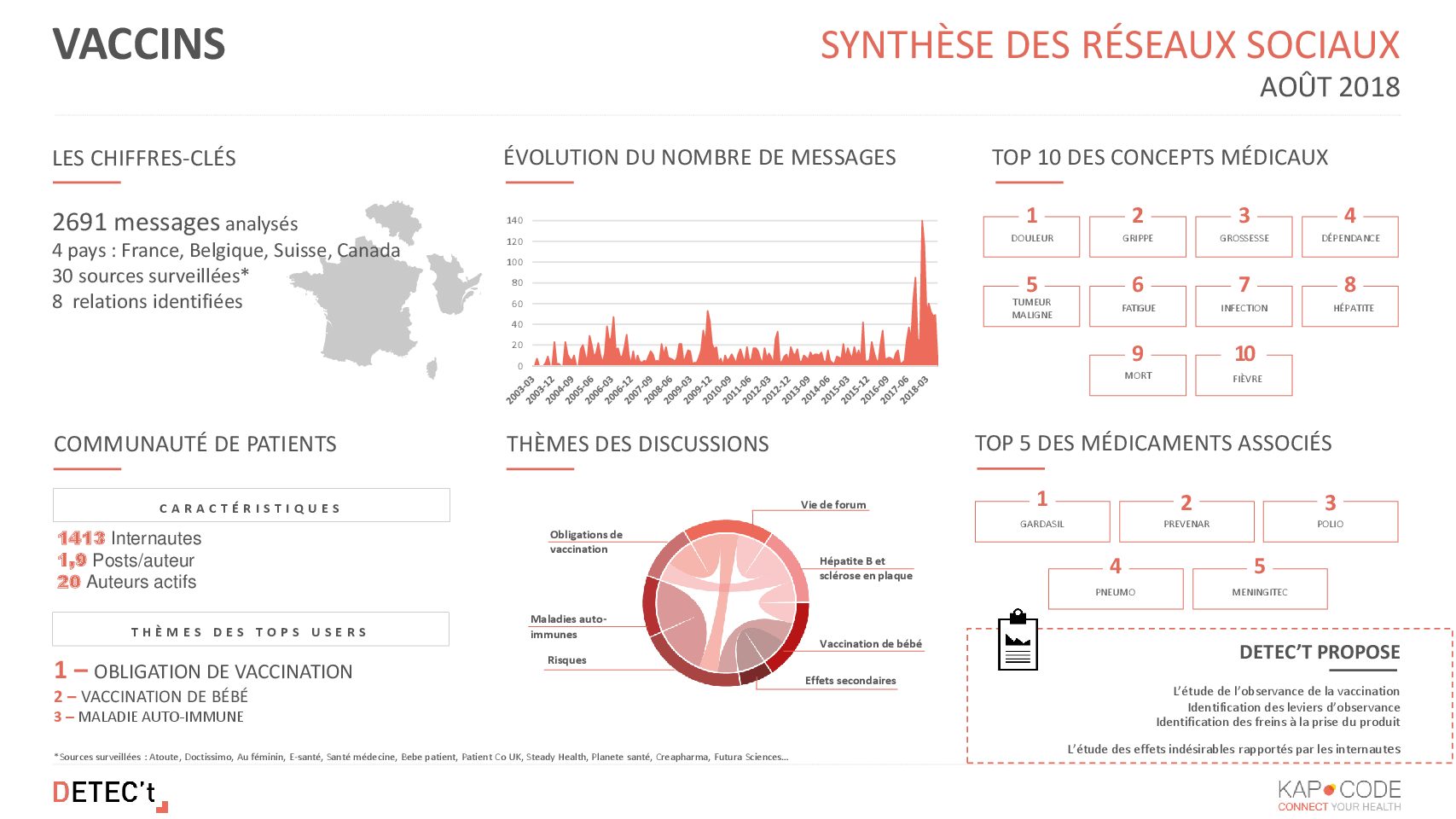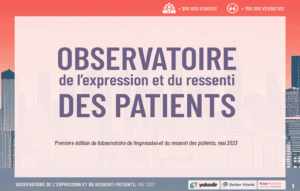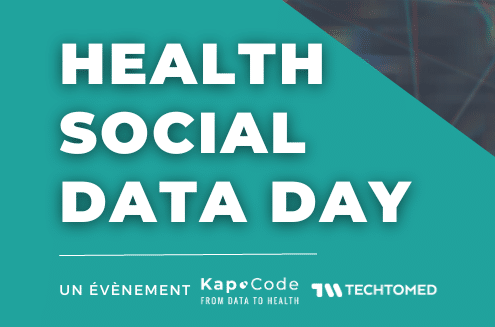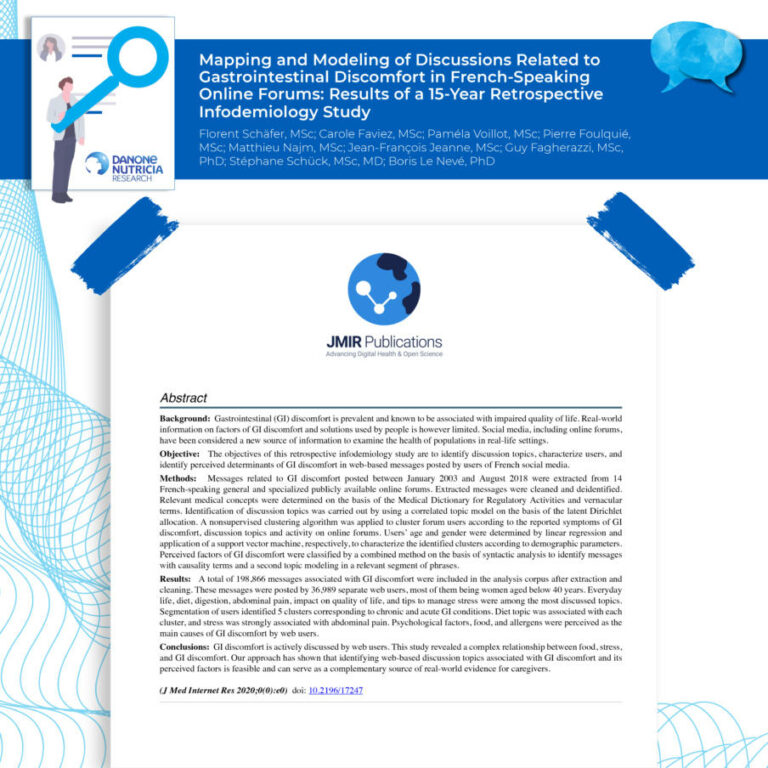In France, since the 30th of December 2017, the number of mandatory vaccines has increased from 3 to 11. This measure follows recommendations from the "Fischer report"[1], which aims to improve vaccination coverage in France and to halt the spreading of vaccine-preventable diseases, such as measles.
Why is it important to improve vaccines acceptability?
Despite significant disparities between vaccines, this law has also been implemented in a context of global mistrust regarding vaccination. Indeed, if 91.2% of French people were in favour of vaccination in 2000, they were only 77.7% in 2017[2].
Regarding this context, Kap Code took part in a round table on this subject, at the “Ateliers de Giens” in 2018 alongside 25 public health specialists to identify concrete actions to improve vaccine acceptability.
What actions were suggested during the Giens 2018 workshops ?
Following this round table, a scientific article was published [3] detailing the various measures to be considered in order to improve vaccine acceptability.
Here is a summary of the proposed actions:
- Create a system to make accessible information regarding immunization: in order to allow access (while respecting personal data) to scientifically validated information for all citizens (patients and health professionals alike).
- Monitor discussions on the web and social networks: these exchanges are a source of real-world evidence that can be used as a complementary tool in vaccine monitoring.
- Communicate through social networks: in order to counter anti-vaccine propaganda on social networks.
- Develop research in interventional human & social sciences: in order to assess vaccination campaigns acceptability before implementation.
- Simplify vaccination journey and increase immnunization opportunities: Increase stocks of vaccines available at doctors' offices or hospital pharmacies, use of home visits following childbirth or even the introduction of vaccination at school
- Strengthen the training of health professionals: The recommendations refer to initial training, but also to continuing training, for all health professionals involved in the vaccination process.
- School-based training: To improve understanding of immunization issues from an early age.
- Use of motivational interviewing in educational intervention: A method that has been tested in maternity hospitals in Quebec with satisfactory results [4].
- Creation of local initiatives: such as the "Immunize Lyon" event, which aimed to facilitate access to vaccination and invite reflection on this subject.
- Improve supply chain and communication about vaccines: Simplify processes to match demand and supply, but also maximize transparency in communication.
What was the role of Kap Code?
Our contribution to this collective work was mostly regarding the monitoring of discussions on the web and social networks. Key activity of our company, the analysis of these real-world data is carried out by our tool Detec’t. As an example of our services, you can find an overview of what is said on social networks regarding measles vaccination.
Exchanges between Internet users are generated spontaneously and without the bias induced by the particular relationship between health professionals and patients. They can therefore be an interesting real world data adding value in addition to traditional analytical methods.
If you would like to know more about the initiatives proposed during the Ateliers de Giens, you can consult the full text of the scientific publication.
Sources
[1] Fischer A. (dir.). Rapport sur la vaccination. Comité d’orientation de la concertation citoyenne sur la vaccination. Paris : ministère des Affaires sociales et de la Santé ; 2016 : 502 p. En ligne : http://www.ladocumentationfrancaise.fr/var/storage/rapports-publics/164000753.pdf
[2] Vaccination info services.fr (2019). Données du baromètre de la santé. Repéré à : https://professionnels.vaccination-info-service.fr/Aspects-sociologiques/Perception-et-adhesion-a-la-vaccination/Perception-et-adhesion-a-la-vaccination-en-France
[3] Dutilleul, A., Morel, J., Shilte, C., Launay, O., Autran, B., Béhier, J. M., … & Dufour, V. (2019). Comment améliorer l’acceptabilité vaccinale (évaluation, pharmacovigilance, communication, santé publique, obligation vaccinale, peurs et croyances). Thérapie, 74(1), 119-129.
[4] Ministère de la santé du Québec. EMMIE. Programme entretien motivationnel en maternité pour l’immunisation des enfants; 2018 [Accessed 19 november 2018] http://www.msss.gouv.qc.ca/professionnels/vaccination/programme-d-entretien-motivationnel-en-maternite-pourl-immunisation-des-enfants-emmie/

